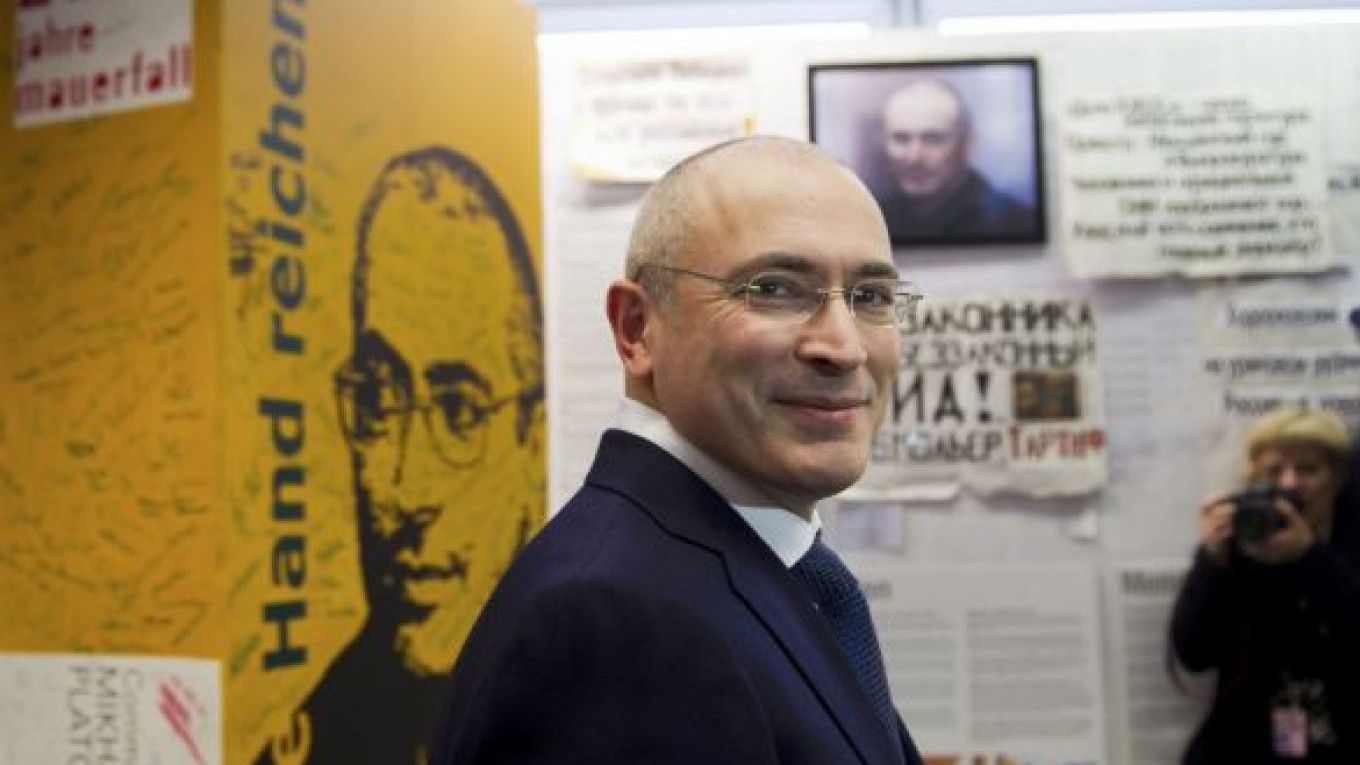The opposition's lackluster performance in recent regional elections has likely contributed to President Vladimir Putin's stunning decision to pardon a former thorn in his side: Mikhail Khodorkovsky.
In the most spectacular showdown, Alexei Navalny, a critic of Putin, mustered 27 percent of the vote in the race for the seat of Moscow city mayor in September, a contest that did not see any severe violations.
"The percentage is big, but not too big," said Dmitry Trenin, director of the Moscow Carnegie Center.
By letting Khodorkovsky walk free, Putin is sending the message that his grip on power is firm enough for him to afford to be lenient to his opponents. Of all the reasons that make him feel so secure, the most significant could be that the recent boisterous protests of the middle class have largely fizzled out without resulting in any major cracks in his government.
"Vladimir is the victor," Trenin said.
Putin's foreign policy achievements could be adding to his feeling of omnipotence. Most recently, Ukraine reversed its march to closer ties with the European Union, opting instead to pledge its love for Russia.
Earlier this year, Putin offered a way out of the seeming impasse over Syrian chemical weapons.
"Not long ago, it appeared that the regime was getting weak," said Nikolai Petrov, a political science professor at the Higher School of Economics. "Now it appears to have some stamina."
Petrov said it primarily was the international triumph with Ukraine and Syria that prompted Putin to believe in his invincibility.
Putin's successes, according to Petrov, may have changed Khodorkovsky's previous resolve to never ask for clemency from the president, whose rule delivered a crushing defeat to the former billionaire's own attempts to influence political life in the country.
Those efforts, such as funding nongovernmental organizations and political forces, including the liberal Yabloko party, may have been very unsettling for Putin when he slogged to solidify his power during his first term in the Kremlin. But then police arrested Khodorkovsky on the tarmac of an airport in Siberia in 2003 on charges of fraud at Yukos, and courts have left him in prison ever since.
Putin's current complacency may partly stem from the broad perception that even if Khodorkovsky steps back into the fray against the Kremlin, he will not add much weight to the punch, Trenin said.
"Khodorkovsky is no Mandela," Trenin said, referring to the late Nelson Mandela, who became South Africa's first black president and dismantled apartheid after sitting in prison for 27 years.
In addition, Petrov said, the former oligarch would have trouble rising on the political firmament in a country that cannot stomach the rich and where the government has the media on a short leash.
Putin's return to the Kremlin for a third term took place amid huge street protests in Moscow, triggered by reports of ballot stuffing during the preceding parliamentary elections and general discontent about the announcement of his comeback.
Back in the highest office, Putin quickly reined in the situation with such measures as the show trials of the female performance art collective Pussy Riot, who sang a prayer in a cathedral asking the Holy Virgin to rid the country of Putin, and of protesters that were caught in a melee with the police during one of the rallies. A loyal State Duma also began spewing laws that targeted potential protesters and independent nongovernmental organizations. One latest bill before the Duma would allow the prosecutor general to immediately block websites that urge people to participate in unauthorized rallies.
Contact the author at medetsky@imedia.ru
A Message from The Moscow Times:
Dear readers,
We are facing unprecedented challenges. Russia's Prosecutor General's Office has designated The Moscow Times as an "undesirable" organization, criminalizing our work and putting our staff at risk of prosecution. This follows our earlier unjust labeling as a "foreign agent."
These actions are direct attempts to silence independent journalism in Russia. The authorities claim our work "discredits the decisions of the Russian leadership." We see things differently: we strive to provide accurate, unbiased reporting on Russia.
We, the journalists of The Moscow Times, refuse to be silenced. But to continue our work, we need your help.
Your support, no matter how small, makes a world of difference. If you can, please support us monthly starting from just $2. It's quick to set up, and every contribution makes a significant impact.
By supporting The Moscow Times, you're defending open, independent journalism in the face of repression. Thank you for standing with us.
Remind me later.






